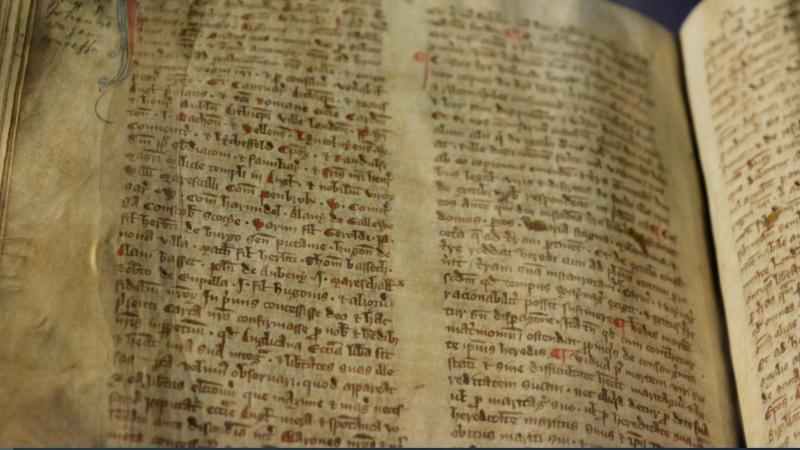International customary law is probably the most disputed and discussed source of international law. For example, it is not clear when a particular State practice becomes a legally binding State practice. It is also unclear how one can identify a rule of international custom, or how one can prove its existence. Important elements are the manifestations of State practice, like declarations, statements or other official documents.
The International Law Commission appointed Sir Micheal Wood as Special Rapporteur concerning the issue of Customary International Law. His reports and recommendations are available in the bibliography under documents.
This Research Guide is intended as a starting point for research in the field of Customary International Law. It provides the basic materials available in the Peace Palace Library, both in print and electronic format. Handbooks, leading articles, bibliographies, periodicals, serial publications and documents of interest are presented in the Selective Bibliography section. Links to the PPL Catalogue are inserted. The Library's subject heading (keyword) International Customary Law is instrumental for searching through the Catalogue. Special attention is given to our subscriptions on databases, e-journals, e-books and other electronic resources. Finally, this Research Guide features links to relevant websites and other online resources of particular interest.
Need some help? Visit Start Your Research for a basic introduction to international legal research in the Peace Palace Library. Your road map for approaching an international legal research problem in 11 steps.
Documents
- International Law Association, Final Report of the Committee on Formation of Customary (General) International Law, London Conference (2000).
- International Law Commission, Formation and Evidence of Customary International Law, Note by M. Wood, Special Rapporteur, UN Doc. A/CN.4/653 (2012).
- International Law Commission, First Report on Formation and Evidence of Customary International Law, by M. Wood, Special Rapporteur, UN Doc. A/CN.4/663 (2013).
- International Law Commission, Second Report on Identification of Customary International Law, by M. Wood, Special Rapporteur, UN Doc. A/CN.4/672 (2014).
- International Law Commission, Third Report on Identification of Customary International Law, by M. Wood, Special Rapporteur, UN Doc. A/CN.4/682 (2015).
- International Law Commission, Fourth Report on Identification of Customary International Law, by M. Wood, Special Rapporteur, UN Doc. A/CN.4/695 (2016).
- International Law Commission, Fifth Report on Identification of Customary International Law, by M. Wood, Special Rapporteur, UN Doc. A/CN.4/717 (2018).
- International Law Commission, The Role of Decisions of National Courts in the Case-law of International Courts and Tribunals of a Universal Character for the Purpose of the Determination of Customary International Law, Memorandum by the Secretariat, UN Doc. A/CN.4/691 (2016).
- International Law Commission, Report on the Work of the Sixty-Eighth Session, Chapter. V: Identification of Customary International Law (draft conclusions), UN Doc. A/71/10 (2016).
- International Law Commission, Report on the Work of the Seventieth Session, Chapter. V: Identification of Customary International Law (draft conclusions with commentaries), UN Doc. A/73/10 (2018).
Reference works
- Bederman, D.J., Custom as a Source of Law, New York, NY, Cambridge University Press, 2010.
- D'Aspremont, J., The Discourse on Customary International Law, Oxford, Oxford University Press, 2021.
- Lepard, B.D., Customary International Law: A New Theory with Practical Applications, Cambridge, Cambridge University Press, 2010.
- Mendelson, M.H. “The Formation of Customary International Law”, Recueil des cours=Collected Courses of the Hague Academy of International Law, 272 (1998), pp. 155-410.
- Merkouris, P. et al. (eds.), Customary International Law and Its Interpretation by International Courts: Theories, Methods and Interactions, Cambridge, Cambridge University Press, 2024.
- Merkouris, Panos. Interpretation of Customary International Law : Of Methods and Limits. Brill, 2024.
- Merkouris, P., J. Kammerhofer and N. Arajarvi (eds), The Theory, Practice, and Interpretation of Customary International Law, Cambridge, Cambridge University Press, 2022.
- Sender, Omri, and M. C. Wood. Identification of Customary International Law. Oxford University Press, 2024.
- Shaw, M.N., International Law, 7th ed., Cambridge, Cambridge University Press, 2014.
- Thirlway, H., The Sources of International Law, Second Edition, Oxford, Oxford University Press, 2019.
- Wolfke, K., Custom in Present International Law , Second Edition, Dordrecht; Boston; London, Martinus Nijhoff Publishers, 1993.
Recent books and peer-reviewed articles
- Dupuy, P.-M. (ed.), Customary International Law, Cheltenham; Northampton, Edward Elgar Publishing, 2021. (41 selected articles)
- Merkouris, P., Interpretation of Customary International Law: Of Methods and Limits, Leiden, Brill, 2024.
For all peer-reviewed articles in the PPL Catalogue, click here.
Periodicals, serial publications
Bibliographies
- Buisman, H.P.C. (comp.), Customary International Law: Selective Bibliography for the 70th Session of the International Law Commission, The Hague, Peace Palace Library, 2017.
- Buisman, H.P.C., Selective Bibliography: Customary International Law and State Practice of France, Germany and the Netherlands, The Hague, Peace Palace Library, 2017.
- International Law Commission, Fifth Report on Identification of Customary International Law: Addendum (Annex II. Identification of Customary International Law: Bibliography), UN Doc. A/CN.4/717/Add. 1 (2018).
- International Law Commission, Fourth Report on Identification of Customary International Law: Addendum (Annex II. Identification of Customary International Law: Bibliography), UN Doc. A/CN.4/695/Add. 1 (2016).
- "Bibliography": in, Sender, Omri, and M. C. Wood. Identification of Customary International Law. Oxford University Press, 2024, pp. 345-383.
